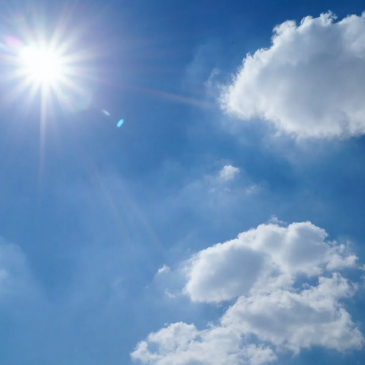What to Look for in Residential Solar
If you made the decision to purchase your first residential solar power system, then congratulations are in order. Welcome to the world of sustainable clean energy and lower energy bills. But before you get too far ahead of yourself, there are some things you should pay close attention to when choosing the right system for your home’s unique needs.
In today’s post, we share six important tips that will help ensure the solar power system you have installed will fit your lifestyle and budget.
#1: Compare Solar Panel Types
The type of solar panels you choose to have installed on your home are just one component of your solar power system, but the type you pick will be one of the most important decisions you will have to make. Currently, there are three types of solar panels – monocrystalline, polycrystalline, and thin-film, with the first two being the most common used in residential applications.
Each comes with its own pros and cons, so comparing them is essential to help ensure you choose the right type for your home. For instance, whereas monocrystalline panels offer excellent efficiency, performance, and aesthetics at a higher price point, polycrystalline panels are more affordable but less efficient. Thin-film panels are flexible, portable, and tend to be the least efficient of the three types, so they are not usually considered for home installations.
#2: Make Sure Your Solar Panel Mounting System Is Appropriate for Your Location
If you live in an area that experiences strong seasonal storms, high winds, or other types of potentially damaging weather events, then you will want to ensure that the solar panel mounting system used on your installation is appropriate and capable of keeping your panels in place during such events.
For instance, if you live in a hurricane risk zone, then you will want to make sure your mounts are hurricane rated. Most systems carry some sort of wind certification, so be sure to find out what your system is certified for before it is installed.
#3: Check the Efficiency of Your Solar Inverter Before Buying
There are dozens of different solar inverters on the market and not all of them are equal. If you choose an inverter without checking its efficiency first and it happens to be a less efficient model, then this will have a direct impact on the amount of time it takes for your system to pay for itself.
Ideally, you want the most efficient inverter you can afford because this will reduce the amount of electricity that gets wasted as heat during the DC to AC conversion.
#4: Check the Manufacturer’s Warranty
From your solar panels to your inverter, every piece of your solar power system will come with some type of manufacturer’s warranty. For solar panels, look for a warranty of at least 25 years. But perhaps even more importantly, make sure the manufacturer of the panels is reputable and has been in business for a while.
Remember, your warranty is only good if the manufacturer is still around to honor it. Avoid products from manufacturers that do not have a positive and lengthy track record in the industry.
#5: Be Realistic About Your System’s Price
Everybody loves getting a great deal, but you know what they say when something sounds too good to be true. If your solar system price is substantially lower than many other similar size systems quoted in your neighborhood, then this could be a red flag that your installer is using poor-quality equipment and/or cutting corners in their installation work.
Quality solar equipment and proper installation is not cheap, and, in this industry, you literally get what you pay for. Therefore, before buying your system, compare components and warranty periods and do some research into the company that you are considering hiring for the installation.
#6: Always Get More Than One Quote on Solar Panels
Purchasing your first residential solar power system is a big investment. You want to make sure you get it right the first time. Never settle on the first contractor who gives you a price quote. Get quotes from multiple installers to ensure you are getting the best balance of price and quality.
Going solar can be exciting because it helps reduce your carbon footprint and lowers your energy bills but choosing the right system for your home does take some due diligence. Carefully weigh the topics covered here before making your choice and you will be enjoying all the benefits of clean, sustainable, and reliable energy before you know it.

